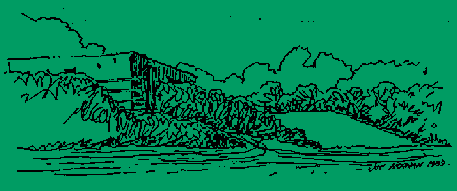Pastimes
Introduction
Nowadays we find it hard
to visualise the dark winter evenings of those times when there was no electric
light, radio, t.v. or cinema. We find it harder to realise that such evenings
were not usually long enough for the games, singing, cardplaying, music, dancing
and storytelling that went on. The Irish enjoy each others company and good
conversation is an entertainment of which they never weary. Irish gregariousness
embraces the public house, the enthusiasm of a sporting occasion and the rural
dancehall that attracts people from miles around.
Cuaird was an important aspect of social life. Cuaird was the name given to
the practise of people converging on one particular household in a townland
to chat, exchange stories or to play cards. In every townland there was at least
one house which was referred among others as a cuairdog house where the men
of the locality convened. It was usually a house where there were no children.
Women rarely if ever went on cuaird.
Since I've been living here, now 10 years, I'll go and visit my old neighbour
at least once a week. She is delighted to see people come in for a chat, and
there is always a strong cup of tea and homemade bread on the table. She told
me about the hard life they had and no money, there was no leisure time, they
worked hard. They had no transport, there was no money for bicycles, but they
enjoyed visiting neighbours to talk, sing and make music and dance.
Times have changed, its better now, more facilities and more money. But it's
sad to see that people have no time to visit each other any more, the elderly
find the evenings very long especially in the winter. Young people with all
the money and leisure time can't amuse themselves and often complain that they
are bored. The impact of modern development with its new materials and methods,
with its rapid transport and instant passage of information across the face
of the world is changing the lives of people everywhere.
Platform
dances
Platform dances were held outdoors
on a Sunday after Mass during the summer. The platforms were made of wood and
specially built for the season, but the platform in Uggoon was made of cement,
this platform was broken up by the Council only ten years ago. The Currakyle platform
was made of concrete and a portion of it can still be seen clearly, to this day.

During the long summer Sundays,
rows of people sat on the ditches on either side of the road enjoying the music
and dancing. The existance and success of this platform was due in no small way
to the large (local) population, although people travelled far distances to dance
here.
There were platforms at many crossroads, that's how it was also known as crossroad
dancing. The handball alley in Currykanore, Caherhurley (60-30ft) 1805 was used
for platform dancing.
Drama
Drama Started with travelling
shows with songs, magic, tricks and a short play in a tent with a tiny stage.
In April 1875 theatre arrived in Feakle in the shape of Dunphy Theatrical family
group who were described as well known comedy actors and singers.
The performances consisted of duets, dancing, singing. The tradition of these
travelling theatrical groups or fit-ups continued right up to the 1950's. The
tradition of local amateur drama production in the parish seems to have begun
in the 1930's. Feakle Dramatic Group won the Rural Award at the Scariff Drama
Festival in 1950. After a break of 27 years the Feakle Drama Group reformed in
1995.
The Strolling Players or fit-ups performed in the Old Town Hall in Scariff, which
was formerly the National School until it closed in 1904. Two or three companies
of Strolling Players performed in the Town Hall every year up to about 1948. The
East Clare Drama Festival was held in Scariff in 1947. There was no electricity,
no stage, no seating in the Hall. The East Clare Drama Festival was the foundation
of the present Clare Drama Festival.
The venue for the 1949 festival was the Astor Cinema, Scariff, where it was held
every year until 1985. The festival was moved to Scariff Community Hall in 1986
and has been there every year since.
The Tulla Musical Society was set up in Tulla in 1998, and put on a musical just
before Christmas, which was a great success. In 1999 they produced another very
succesfull musical written, produced and directed by Anita O'Louglin, who also
wrote the musical the year before.
Drama was brought to the area in a professional capacity as part of the Flagmount
festival in 1993, 1994, 1995. A large tent was erected each year by the shores
of Lough Graney and the first production in 1993 was produced by the "Druid Theatre
Company" who performed "The Midnight Court". The second year brought the Swansea
Players from Wales who performed "Under Milkwood" and in 1995 was Michael Bogdanov's
production of "The Canterbury Tales" performed by an excellent cast headed by
Brian Glover and Brian Cant.

